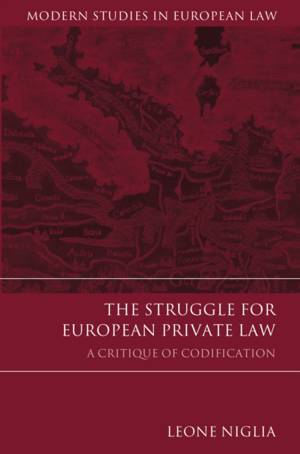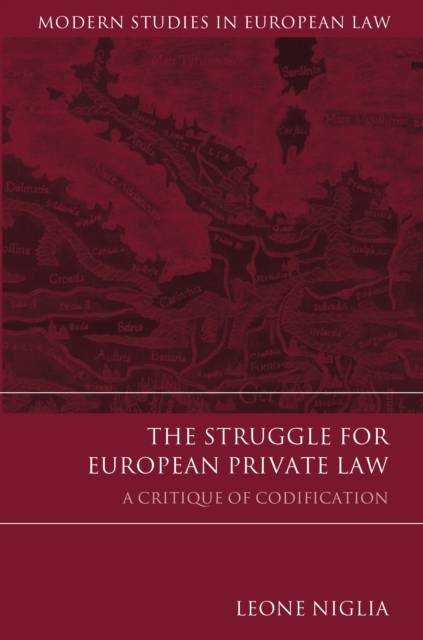
- Retrait gratuit dans votre magasin Club
- 7.000.000 titres dans notre catalogue
- Payer en toute sécurité
- Toujours un magasin près de chez vous
- Retrait gratuit dans votre magasin Club
- 7.000.000 titres dans notre catalogue
- Payer en toute sécurité
- Toujours un magasin près de chez vous
Description
The European codification project has rapidly gathered pace since the turn of the century. This monograph considers the codification project in light of a series of broader analytical frameworks - comparative, historical and constitutional - which make modern codification phenomena intelligible. This new reading across fields renders the European codification project (currently being promoted through the Common Frame of Reference and the Optional Sales Law Code proposal) vulnerable to constitutionally-grounded criticism, traceable to normative considerations of private law authority and legitimacy. Arguing that modern codification phenomena are more complex than positivist, socio-legal and historical approaches have suggested over the past two centuries, the book stages a pathbreaking method of analysis of the law-discourse (nomos-centred) which questions at once the reduction of private law to legislation and of law to power and, on this basis, redefines the ways in which to counter law's disintegration and crisis in the context of Europeanisation.
Professor Niglia reconstructs the European codification project as a complex structure of government-in-the-making that embodies a set of contingent world views, excludes alternatives, challenges the plurality of private laws and entrenches conflicts that pertain not only to form (codification, de-codification, recodification) but also to dilemmas implicated in determining the substantive orientation of European private law. The book investigates the position of the codifiers and their discontents in the shadow of the codification strategy pursued by the European Commission - noting a new turn in the struggle over the configuration of private law which has taken place since the Savigny-Thibaut dispute of 1814 which this book critically revisits exactly two centuries later. This monograph is particularly aimed at readers interested in exploring the complexities, and interconnections, of the supposedly separate realms of comparative law, European law, private law, legal history, constitutional law, sociology of law and, last but not least, legal theory and jurisprudence.Spécifications
Parties prenantes
- Auteur(s) :
- Editeur:
Contenu
- Nombre de pages :
- 196
- Langue:
- Anglais
- Collection :
- Tome:
- n° 50
Caractéristiques
- EAN:
- 9781509913824
- Date de parution :
- 23-02-17
- Format:
- Livre broché
- Format numérique:
- Trade paperback (VS)
- Dimensions :
- 156 mm x 234 mm
- Poids :
- 281 g







